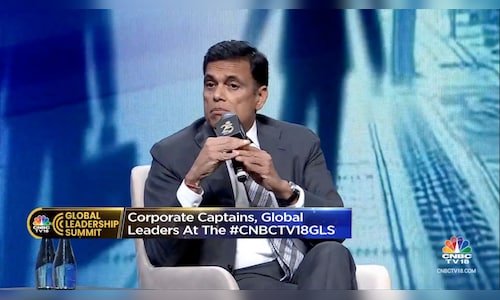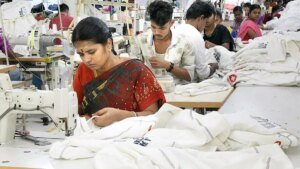‘Let us first become the factory of the world, then we can open doors for competition’: Sajjan Jindal

Speaking at the CNBC-TV18 Global Leadership Summit, Sajjan Jindal, Chairman and Managing Director of JSW Group, responded to Uday Kotak’s call for India to liberalise its trade policies.
Kotak, the Founder of Kotak Mahindra Bank, suggested that India needs to become more competitive by moving away from protectionism. However, Jindal argued that India must first strengthen its manufacturing sector before opening its doors to greater foreign competition.
“Let us first become the factory of the world, then we can open doors for competition,” Jindal said, adding that Kotak’s comments were easier to make from the perspective of someone not involved in manufacturing. He pointed out that India’s manufacturing sector is still developing and needs further growth before it can handle the pressures of unregulated global competition.
Jindal added that India’s manufacturing contribution to GDP is currently only 17%, far below the levels seen in countries like China. He argued that India needs to raise this figure to 25-30% before fully embracing liberal trade policies. He also highlighted that even the United States, after more than a century of development, still maintains tariffs to protect its industries.
Drawing a comparison with China, Jindal pointed out that country’s rise as a manufacturing powerhouse was supported by protectionist policies in the 1990s. “Once China became the factory of the world, they opened up,” Jindal said, underlining the need for India to follow a similar trajectory before fully liberalising.
The JSW Group head also noted the importance of heavy industries like steel, which require large-scale investment to grow. “If you don’t make profits, you can’t reinvest. My shareholders will not give me money to invest if I can’t make money,” Jindal explained at the Global Leadership Summit.
ALSO READ | ‘The best time for beauty is yet to come’, says Nykaa’s Falguni Nayar
He said India’s steel industry alone needs $20 billion in annual investment to meet the country’s growing demand, a challenge that only a few large players in the market can handle.
Jindal concluded by urging the government to ensure that heavy industries are given the support they need to grow, stressing that without the success of sectors like steel, smaller industries would also struggle. He reaffirmed his commitment to investing in India, but cautioned that a clear and supportive industrial policy is essential for the country’s long-term growth.
(Edited by : Shoma Bhattacharjee)








